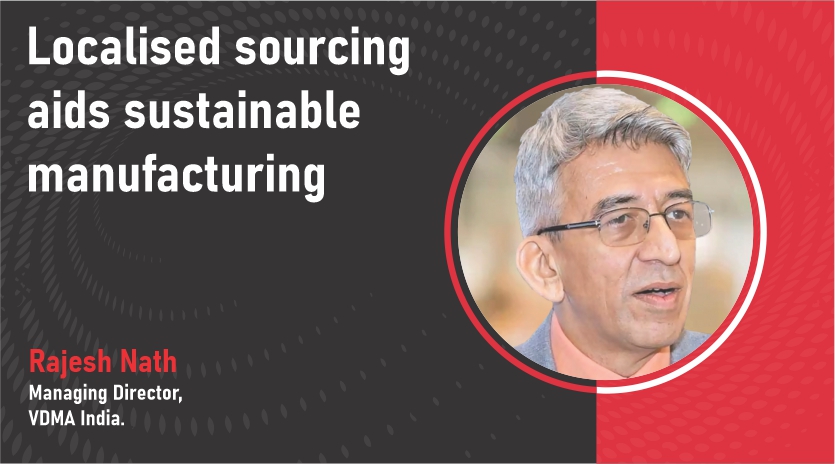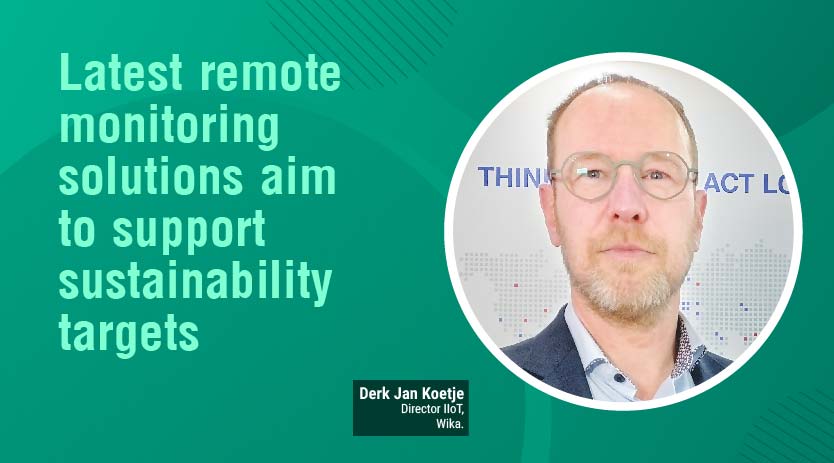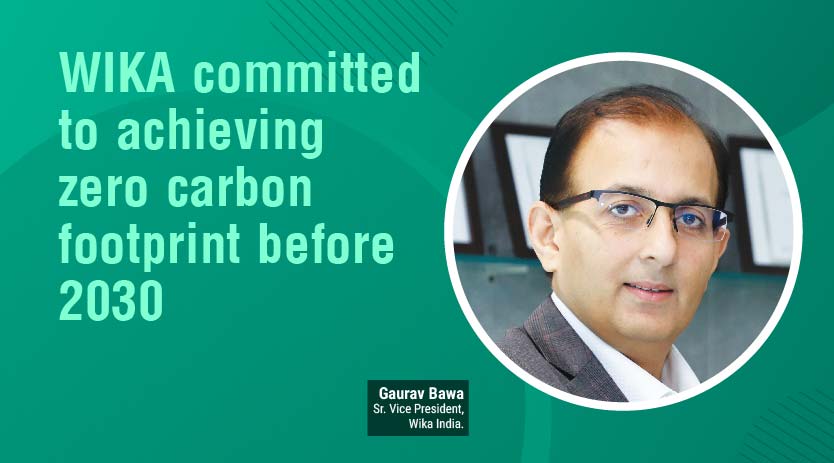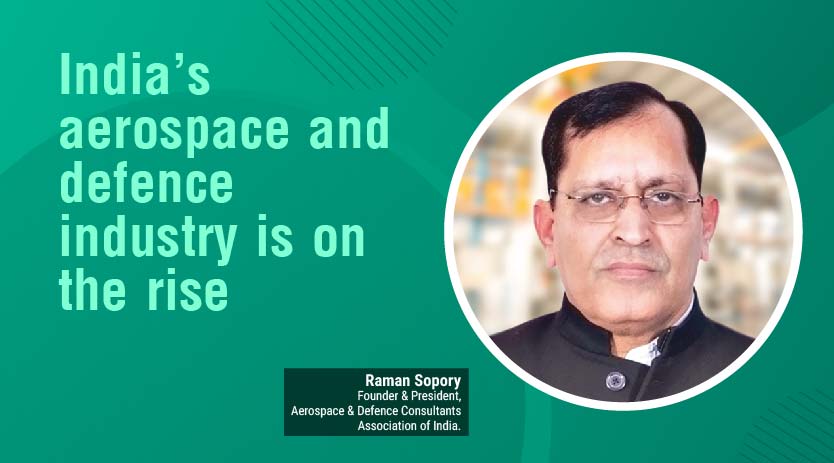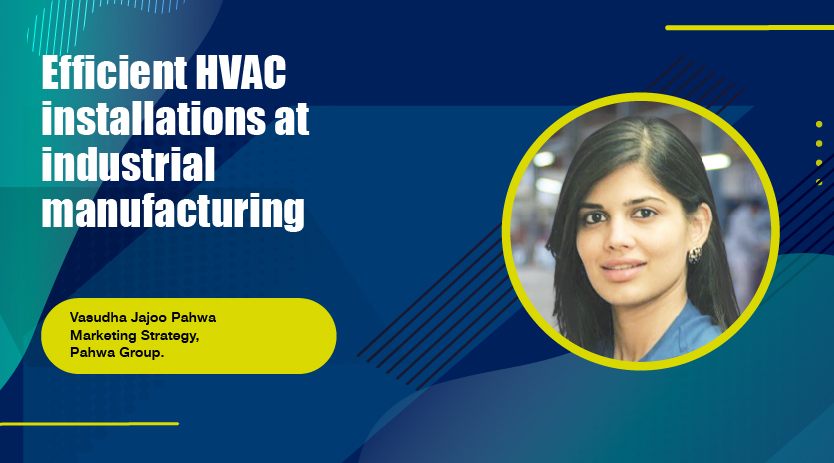Localised sourcing aids sustainable manufacturing
June 12, 2023 11:14 am
Rajesh Nath, Managing Director, VDMA India, opines that apart from local sourcing practices, a comprehensive sustainability strategy in manufacturing should include other measures, such as adopting energy-efficient technologies, waste reduction initiatives, process optimising and using renewable energy sources.
How does localised sourcing help transition to eco-friendly and sustainable manufacturing practices?
Localised sourcing strategies often support the transition to eco-friendly and sustainable manufacturing practices. This approach can have several benefits for adopting eco-friendly practices in manufacturing. Localised sourcing can support the transition through a reduction in the carbon footprint through a reduction of long-distance shipping, enhancement in the supply chain visibility by local suppliers’ alignment with the organisation’s eco-friendly goals, joint efforts to adopt sustainable manufacturing practices, growth of the local economy by supporting local businesses and suppliers, greater flexibility and agility in responding to market demands and changes. Apart from local sourcing practices, a comprehensive sustainability strategy in manufacturing should also include other measures, such as adopting energy-efficient technologies, waste reduction initiatives, and using renewable energy sources.
What factors and regulatory policies challenge implementing sustainable manufacturing practices in the manufacturing sector?
The manufacturing sector faces several challenges when implementing sustainable manufacturing practices. These challenges can vary depending on industry, geographic location, and company size. First and foremost, there would be cost implications as implementing sustainable manufacturing practices often requires upfront investments in new technologies, equipment, and processes. Secondly, many manufacturers may need more knowledge and understanding of sustainable manufacturing practices and resources to identify and implement environmentally friendly technologies and processes. Overcoming this challenge requires education, training, and access to specialised knowledge. Environmental standards and regulatory policies are also a challenge. Manufacturers may face challenges in sourcing sustainable materials and components. Manufacturers must balance sustainability goals with other operational priorities, such as cost-effectiveness, quality, and productivity. It requires careful planning and integrating sustainable practices into the overall business strategy.
Will integrating smart technologies and R&D by machine tools manufacturers bring competitive improvement in business?
Embracing and driving technological advances is key to gaining a competitive advantage. The machine tool manufacturers can invest in research and development to improve product performance, efficiency, accuracy and functionality. Integrating smart technologies like IoT, AI, and data analytics can enable predictive maintenance, optimise production processes, and enhance overall equipment effectiveness. Also, offering customised solutions and flexibility in manufacturing processes can be a significant advantage. Maintaining high levels of quality and reliability is essential for building a strong reputation in the industry. Consistently delivering machines that meet or exceed customer performance, durability, and precision expectations can differentiate a manufacturer from competitors. Improving cost-effectiveness and operational efficiency is critical for competitiveness. This can be achieved through lean manufacturing principles, process optimisation, waste reduction, energy efficiency initiatives, and continuous improvement practices. Exploring new markets and expanding internationally can open up new growth opportunities, and providing excellent after-sales support and service can be a key differentiator. Embracing sustainable manufacturing practices and positioning oneself as an environmentally responsible company can be a competitive advantage. Attracting and retaining skilled talent is vital for driving innovation and competitiveness. Machine Tool manufacturers should invest in recruiting and developing a skilled workforce, provide training programs, and foster a culture of continuous learning and improvement.
What advantages will adopting technologies like 3D printing and AR bring to equipment part manufacturing in India?Adopting 3D printing, AR, and AI technologies in complex equipment part manufacturing can significantly benefit the Indian manufacturing sector. 3D printing offers several advantages in complex equipment part manufacturing. It enables the production of intricate and customised parts with reduced lead times and costs. In India, 3D printing can facilitate local manufacturing of complex equipment parts, eliminating the need for importing them. This localisation can reduce supply chain dependencies, enhance flexibility in production, and support just-in-time manufacturing.
AR technology can revolutionise complex equipment part manufacturing by providing real-time visual guidance and assistance. Indian manufacturers can leverage AR to overlay digital information, such as assembly instructions, maintenance procedures, and troubleshooting guides, onto physical equipment. This technology lets technicians visualise complex assemblies, identify parts, and perform tasks precisely.
AI has vast applications in complex equipment part manufacturing, particularly in quality control, predictive maintenance, and process optimisation. AI algorithms can analyse large datasets to detect anomalies, predict failures, and optimise manufacturing parameters. By leveraging AI-powered systems, Indian manufacturers can improve product quality, reduce downtime, and enhance overall equipment effectiveness. AI can also enable predictive and proactive maintenance, helping to prevent unexpected equipment failures and minimising costly downtime.
These technologies can drive local production, reduce reliance on imports, enhance productivity, improve quality, and contribute to the country’s technological advancement.
What strategy will you suggest towards sustainable manufacturing?
German industries’ approach towards sustainable manufacturing involves integrating environmental considerations into their operations, processes, and decision-making. It entails minimising the environmental impact of manufacturing activities, conserving resources, reducing waste, and adopting eco-friendly practices.
Implementing energy-efficient technologies and practices throughout the manufacturing process by using energy-efficient machinery, optimising equipment settings, employing smart control systems, and conducting energy audits to identify areas for improvement can significantly contribute to the required goals. Waste reduction strategies such as lean manufacturing principles, process optimisation, and material efficiency measures can reduce the environmental impact. Some other practices include implementing water conservation measures by optimising water use in manufacturing processes, reducing greenhouse gas emissions, sourcing materials from sustainable and environmentally responsible suppliers, using sustainable design principles and conducting life cycle assessments (LCAs) to evaluate the environmental impact of products. It is important for companies to continually assess and adapt their practices, staying up to date with emerging technologies and best practices in sustainable manufacturing.
Cookie Consent
We use cookies to personalize your experience. By continuing to visit this website you agree to our Terms & Conditions, Privacy Policy and Cookie Policy.



